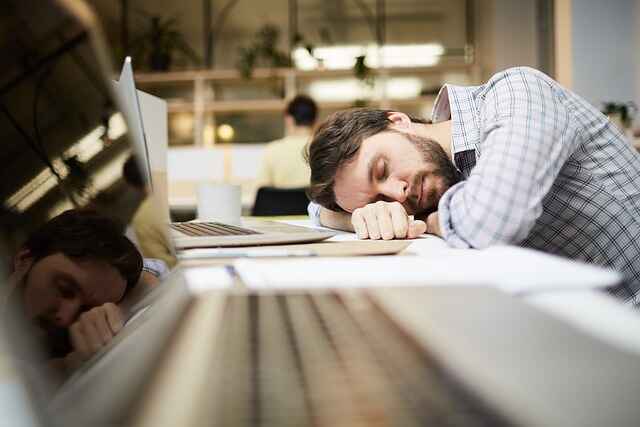After skin cancer, prostate cancer is the most common cancer among men. If diagnosed during the early stage, it can often be treated successfully. You can find all about this cancer, including symptoms, risk factors, diagnosis, and treatment. If you have prostate cancer or know someone who does, being well-informed about the disease can help you cope. (Source & Reference)
Also Read: All About Heart Attack: Causes, Symptoms, Diagnosis & Treatment
About Prostate Cancer
Prostate cancer occurs when cells in the prostate gland start to grow abnormally. The prostate is a walnut-shaped small gland in males that produces semen fluid and transports sperm.
Most prostate cancers grow very slowly and are restricted to the prostate gland; in that case, they may not cause serious harm. However, some genres of this cancer spread slowly and may require minimal to no treatment, while other types are life-threatening and can spread quickly. When detected early, it is still restricted to the prostate gland, which has the best chance for successful treatment.
Causes of Prostate Cancer
The precise causes of this cancer are not yet clear to the researchers.
The DNA of a cell contains information on how the cell works. Researchers have observed that prostate cancer occurs when cells in the prostate develop changes in their DNA. The set changes instruct the cells to grow and divide more rapidly, and they start to grow out of control. These cells that have transformed DNA continue living when other healthy cells die.
These abnormal cells cumulatively form tumors that can grow and influence nearby tissue cells. These abnormal cells can spread to other body parts as well.
Risk Factors
Researchers have discovered several factors that might increase a man’s risk of getting prostate cancer.
Age
The chances of having this cancer rise rapidly after age 50. According to social surveys, almost 11 in 20 cases of prostate cancer are found in men older than 65.

Race/ethnicity
Specific reasons are not determined yet; Black people have a much greater risk of prostate cancers than people of other ethnicities. In Black people, prostate cancer is more likely to be life-threatening and aggressive.
Family history
If a parent, sibling, or child has been diagnosed with prostate cancer, your risk may be higher. Also, if you have a powerful family history of breast cancer, your chance of getting prostate cancers may be higher.
Diet
Men who consume high amounts of dairy products daily appear to have a slightly higher chance of getting prostate cancer.
Also Read: All About Ketogenic Diet: A Detailed Guide On Keto Diet For Beginners!
Obesity
Some studies have suggested that highly overweight men have a lower risk of getting a slower-growing disease but a higher risk of getting a more aggressive disease like prostate cancer. The reasons for this are not clear. (Source & Reference)
Symptoms
Prostate cancer has several signs and symptoms; if you experience any of the following symptoms, you need to contact your medical specialist immediately:
- During urination, if you experience any interruption
- Difficulty in starting the urination and pain or burning sensation during urination.
- Experiencing frequent and urgent need for urination, especially at night.
- Observe closely if you notice any blood in your urine or semen.
- Experiencing prolonged pain in your back.
- Trouble emptying the bladder completely.
- Difficulty or pain during ejaculation. (Source & Reference)

Diagnosis
List of screening that can be done for suspected prostate cancer-
- Medical history and physical exam: If you are experiencing pain during urination and blood in your urine, you need to visit your doctor. The doctor will examine you in detail, including DRE (digital rectal exam); this process will check if any hard lump is present on your prostate that might lead to cancer.
- PSA blood test: Prostate-specific antigen(PSA) is a kind of protein that is made by the cells in the prostate gland. A PSA blood test is one of the tests done for a man suspected of having prostate cancer or having already been diagnosed with it. Any man with PSA levels under 4ng/ml of blood might not have prostate cancer; this does not guarantee the condition. If the PSA level is over 10, the patient has a 50% chance of having prostate cancer.
- Prostate biopsy: In this procedure, small prostate samples are removed and looked at with a microscope. A core needle biopsy is a primary method used to detect this cancer. A urologist usually does this process.
- Transrectal ultrasound (TRUS): In this process, a tiny probe is lubricated and placed inside the patient’s rectum. The search creates sound waves by entering the prostate and creating echoes. The created echoes help the computer create a black-and-white prostate image.
- Magnetic resonance imaging (MRI): MRI creates a detailed picture of the soft tissues in the prostate; this would help determine any trace of abnormal cells in the prostate.
- Bone scan: Most of the time, prostate cancer spreads to the bone first. A detailed scan of the bone helps determine probable prostate cancer.
- Positron emission tomography (PET) scan: This process is mainly used to collect cancer cells, if any exist.
- Computed tomography (CT) scan: This scan helps capture a cross-sectional image of a body part. This scan is used to see if prostate cancer has spread into nearby organs. If there is any recurrence of prostate cancer after treatment.

Prevention
Following a healthy diet and maintaining a healthy weight are essential to prevent this cancer. Eat various fruits, vegetables, and whole grains. Fruits and vegetables contain many nutrients that help you maintain a healthy diet. Also, Exercise can help improve overall health and enables you to maintain weight and mood. It is not yet conclusively proven that prostate cancer can be prevented by maintaining a healthy diet and weight. But eating a healthy diet with various fruits and vegetables can help you cure many diseases.
You can also use vitamins and supplements like Vitamin E, selenium, Soy, and isoflavones to prevent this cancer. Medicines like 5-alpha reductase inhibitors are one form of enzymes in the body that transform testosterone into dihydrotestosterone (DHT), the primary hormone that causes the prostate to grow. Studies have shown taking these drugs can help lower the risk of this cancer.
Facts
- Diagnosed cases of cancer of prostates in India for 2010 and 2015 were estimated at 26,120 and 28,079.
- This cancer in Indian men is constantly and rapidly increasing, and the cancer projection data shows that the number of cases will be doubled in the coming years.
- Cancer of the prostrate is a severe disease and must be treated, but most of the time, this cancer in men is not fatal.
- (Source & Reference)





